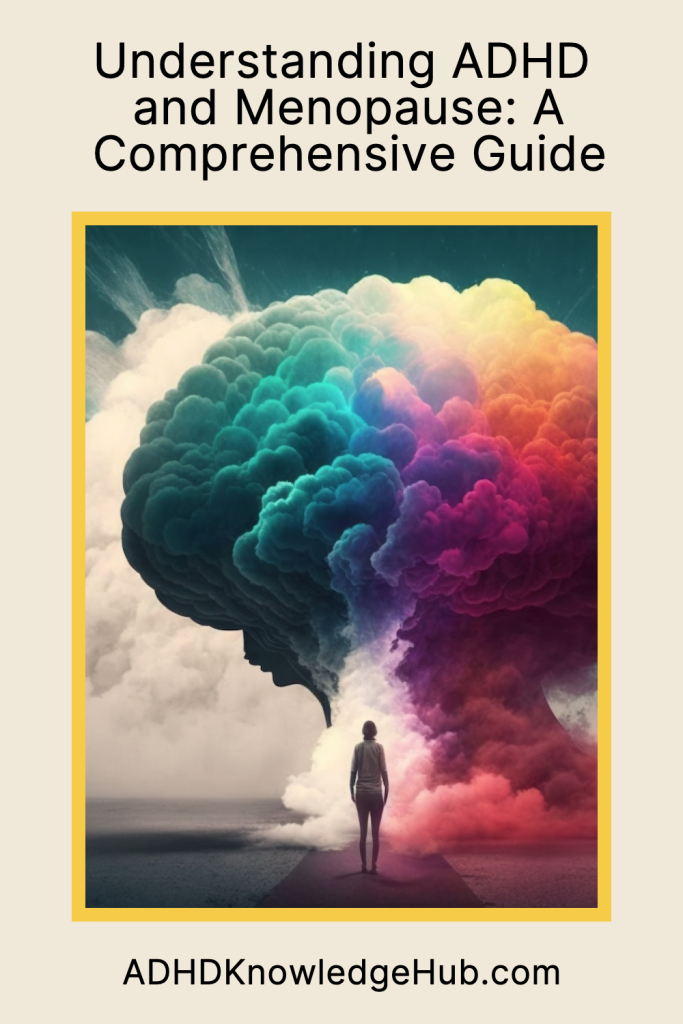Understanding ADHD and Menopause: A Comprehensive Guide
What is ADHD?
Before delving into ADHD and Menopause, let’s understand Attention Deficit Hyperactivity Disorder (ADHD). This is a neurodevelopmental disorder that affects both children and adults. It’s marked by a continuous pattern of inattention, impulsivity, and hyperactivity, which interferes with functioning and development. People with ADHD often find it difficult to manage their daily lives due to these challenges. These can manifest as difficulties in finishing tasks, maintaining organization, managing time effectively, and staying focused on activities. It’s essential to understand that ADHD isn’t just about being hyperactive or unable to concentrate – it’s a complex disorder that can significantly impact a person’s life if not managed appropriately.
What is Menopause?
Menopause represents a significant transition in a woman’s life, marking the end of her reproductive years. It’s a natural biological process that usually occurs in the late 40s or early 50s, though it can happen earlier for some women. Menopause is confirmed when a woman hasn’t had a menstrual period for one year. It’s characterized by a reduction in the production of hormones such as estrogen and progesterone. This hormonal shift can lead to various physical and emotional symptoms like hot flashes, night sweats, mood swings, anxiety, depression, and sleep disturbances, making it a challenging time for many women.
The Intersection of ADHD and Menopause
Explaining the Connection
The convergence of ADHD and menopause presents a unique set of challenges. The hormonal changes that occur during menopause, specifically the decline in estrogen levels, can intensify the symptoms of ADHD. Estrogen plays a crucial role in regulating mood and cognition by influencing neurotransmitters like dopamine – a chemical that’s already out of balance in people with ADHD. When estrogen levels fall during menopause, it can disrupt dopamine activity further, leading to a worsening of ADHD symptoms.
Symptoms at the Crossroads of ADHD Menopause
The combination of menopause and ADHD can result in a mix of symptoms that create a complex clinical picture. Women with ADHD may experience an intensification of their ADHD symptoms, such as increased inattention, forgetfulness, and disorganization, during menopause. These might be compounded by typical menopausal symptoms like sleep disturbances, mood swings, and hot flashes, creating a somewhat overwhelming experience for the women affected.
How ADHD can Affect Menopause
Emotional Turmoil
Navigating through menopause can be emotionally challenging for most women, but for those with ADHD, the journey might be even more turbulent. The hormonal imbalance during menopause, coupled with the inherent emotional regulation difficulties in ADHD, can lead to significant emotional instability. Women may experience increased irritability, anxiety, and depression, which can negatively impact their quality of life.
Cognitive Issues
Cognitive difficulties, often a characteristic of ADHD, can also be exacerbated during menopause. Women might find it increasingly challenging to focus, remember things, or organize tasks – difficulties that are likely to affect both their personal and professional lives. This can be frustrating and cause feelings of inadequacy and stress.
Physical Complications of ADHD Menopause
Menopause brings its set of physical symptoms, and these can be even more distressing for women with ADHD. For instance, hot flashes and night sweats, common symptoms of menopause, can be particularly troublesome for women with ADHD due to their heightened sensory sensitivity.
Coping with ADHD Menopause
Therapeutic Interventions
Psychotherapy
Psychotherapy can play a critical role in helping women manage the emotional and cognitive challenges associated with this combination. Cognitive-behavioral therapy (CBT), in particular, can be extremely helpful. It can help women develop effective coping strategies, improve their problem-solving abilities, and promote healthier thought patterns. Sessions with a qualified therapist can range in cost from $50 to $200 per session, depending on the therapist’s experience and location.

Medication
Depending on the severity of the symptoms, medication might be recommended. Healthcare professionals might prescribe ADHD medications to manage the ADHD symptoms or hormone replacement therapy (HRT) to manage the menopausal symptoms. ADHD medications can help improve focus and reduce impulsivity and hyperactivity, while HRT can help balance hormone levels and reduce menopausal symptoms. The costs for these medications can vary widely based on the specific drug, insurance coverage, and regional pricing variations, but generally, ADHD medications can cost anywhere from $20 to $50 per month, while HRT can range between $30 and $90 per month.
Lifestyle Adjustments
Exercise
Physical activity is a natural mood booster. Regular exercise can help manage ADHD symptoms, reduce stress, improve sleep, and boost overall mood. Whether it’s going for a daily walk, doing yoga, or joining a gym, the important thing is to find an activity you enjoy and make it a regular part of your routine. Gym memberships typically cost between $30 and $50 per month, but outdoor activities like walking or jogging are free!
Diet
Nutrition plays a significant role in managing both ADHD and menopause. A balanced diet, rich in fruits, vegetables, lean proteins, and whole grains, can help manage weight, improve mood, and boost energy levels. Additionally, certain foods like fish and flaxseeds, which are high in omega-3 fatty acids, can support brain health and potentially alleviate some ADHD symptoms. The cost of these foods can vary, but generally, a bag of flaxseeds will cost around $10-$15.
Sleep
Sleep disturbances are common in both ADHD and menopause, and poor sleep can exacerbate both conditions. Good sleep hygiene is crucial – this involves maintaining a regular sleep schedule, ensuring your sleeping environment is conducive to sleep (cool, dark, and quiet), and avoiding stimulating activities close to bedtime. Investing in a high-quality mattress (around $500-$1000) and blackout curtains (around $20-$50) can significantly improve the quality of your sleep environment.
Helpful Products for Managing ADHD and Menopause
There are numerous products on the market designed to assist individuals. For instance, fidget toys (around $5-$20) can help manage restlessness, planners or apps (around $10-$30) can assist with organization, and menopausal supplements (around $15-$30) can help manage hot flashes and other menopausal symptoms. However, it’s recommended to discuss with a healthcare professional before starting any new supplement regimen.
Conclusion
Menopause is a significant life transition, and when it intersects with ADHD, it can pose unique challenges. However, understanding these challenges is the first step towards managing them effectively. With the right combination of therapeutic interventions, lifestyle adjustments, and the support of healthcare professionals, navigating ADHD during menopause can become less daunting. Remember, it’s okay to seek help and take steps towards improving your quality of life.
FAQs
- Does ADHD get worse with menopause? The hormonal changes during menopause can potentially exacerbate ADHD symptoms. However, this varies among individuals, and not every woman with ADHD will experience a worsening of symptoms during menopause.
- Can lifestyle changes help manage ADHD symptoms during menopause? Absolutely, lifestyle changes like regular exercise, a balanced diet, and good sleep hygiene can play a crucial role in managing symptoms.
- Are there any specific products that can help manage this? Yes, products like fidget toys, planners, and menopausal supplements can provide additional support. However, their effectiveness may vary from person to person.
- Should I seek professional help if I’m struggling with this? Absolutely, if you’re finding it difficult to manage your symptoms, professional help can provide valuable support and guide you towards appropriate treatments.
- Can psychotherapy help manage ADHD and menopause? Yes, psychotherapy, such as cognitive-behavioral therapy, can be a useful tool for managing the emotional and cognitive challenges associated with ADHD and menopause.
Please note: This article is intended for informational purposes only and does not replace professional medical advice. If you’re experiencing severe symptoms or health issues, consult with a healthcare professional.

*We may earn a commission for purchases made using our links. Please see our disclosure to learn more.




